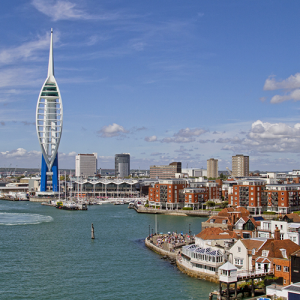Today’s announcements made in the Next steps on the NHS Five Year Forward View sets out measures to designed to deliver “the biggest national move towards integrated care currently underway in any western country”.
It calls for an extra 5,000 lives to be saved a year through improved cancer care, boosts to mental health services with measures to prevent crisis admissions and the expansion of GP services on evenings and weekends.
NHS England has pledged to put an extra 3,250 GPs, 1,300 clinical pharmacists and 1,500 mental health therapists, into GP surgeries by 2019.
Pressure on A&E departments will be eased through the creation of a network of about 150 urgent treatment centres across the country to take the burden off of emergency services.
The plan called on hospitals and local councils to work together to cut the number of patients stuck in hospital, despite being medically fit to be discharged, due to lack of local social care – this is intended to free up 2,000-3,000 hospital beds.
NHS England chief executive Simon Stevens said: “Today we chart a course for practical care improvements for the next few years. We do not underestimate the challenges but, get these right, and patients, staff and the tax-paying public will notice the benefits.”
However Stevens did admit that there would a “trade off” which means operation waiting times could increase as the service tackles its clinical and financial pressures.
The NHS target of treating 92% of patients within 18 weeks of being referred has not been met since February 2016 – and Stevens conceded there could be “some marginal lengthening of waiting lists”.
His comments come after the medical director of NHS England, Sir Bruce Keogh, said the health service’s target of seeing 95% of A&E patients within four hours would be scrapped next year.
Sir David Behan, chief executive of the Care Quality Commission, said: “It is important that leaders across health reach out to their colleagues in local authorities to break down organisational barriers so that collectively, they can ensure people’s needs are always put first.
“The good news is that we are seeing this already through our inspection findings, with the development of the sustainability and transformational plans, and with the Government’s additional investment in social care.
“For the Next steps on the Five Year Forward View to be a success, it should not just be seen as a plan for the NHS but for local authorities to actively engage in too. Only this will bring about real and sustainable improvements in quality.”
Chris Ham, chief executive of the King’s Fund, said the plan set out a clear course set out for the NHS over the coming years but warned that people should be under no illusions about how tough the task will be.
He added: “Hospitals are now under pressure all year round and so the ambition to improve A&E performance and other key services within the current budget is extremely ambitious.
“Putting the onus on the NHS and local authorities to work together to improve social care and free up hospital beds is the right approach. But with growing pressures on both services, expecting 2,000 to 3,000 hospital beds to be freed up is optimistic.”



















